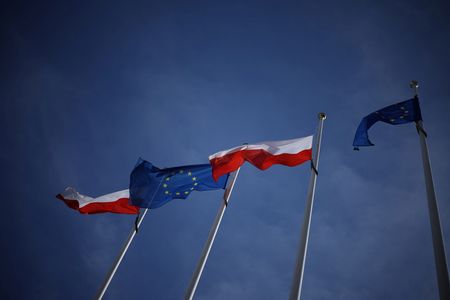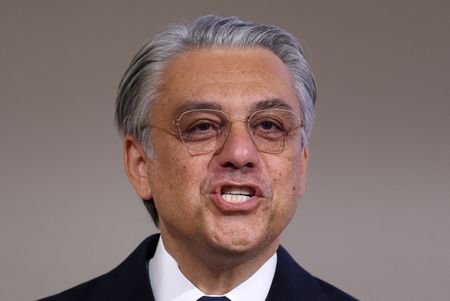BUDAPEST (Reuters) – A planned oil pipeline from Hungary to Serbia could begin to meet all of Serbia’s crude oil needs by 2028, Hungarian foreign minister Peter Szijjarto said on Wednesday.
Construction of the pipeline, with annual capacity of 4-5 million tons, could start late this year or early in 2026, Szijjarto said at a news conference with Serbian Energy Minister Dubravka Dedovic Handanovic.
The two countries agreed in 2022 to build a pipeline to supply Serbia with Russian Urals crude coming via the Soviet-era Druzhba oil pipeline.
While the European Union has sought to cut reliance on Russian energy supplies since the latter’s invasion of Ukraine in 2022, landlocked Hungary still gets some 80% of its gas and most of its crude from Russia.
Ties between Serbia and Hungary have strengthened in recent years, and their long-time leaders, Hungarian Prime Minister Viktor Orban and Serbian President Aleksandar Vucic, enjoy strong relations with Russia.
The southern branch of the Druzhba, or Friendship pipeline, runs via Ukraine to Hungary, Slovakia and the Czech Republic, and has been the primary source of supply for the three countries’ refineries for years, although the Czechs are due to stop taking supplies through that route in the coming months as it ends dependence on Russian oil.
ENERGY SECURITY
Hungarian oil company MOL, which has refineries in Hungary and Slovakia, presented a feasibility study for the pipeline on Wednesday, Szijjarto said, which was approved by the two countries.
“Currently, Hungary’s entire natural gas import needs can be met through Serbia. And with this new investment, Serbia’s entire crude oil import needs will be met through Hungary,” Szijjarto said.
“This creates a strategic position that will provide significant security for both of us,” Szijjarto said, referring to energy security.
The pipeline project includes Hungary boosting the capacity of oil flow between the Ukraine border and its Danube refinery, and building a new, 190 km (118 mile)-long pipeline from the refinery to the border with Serbia.
Szijjarto said that the cost of the capacity expansion and the construction of the new pipeline to the border will be about 130 billion forints ($350.33 million).
Serbia, outside the EU, also relies on Russian crude supplies, and has been scrambling to find a solution to ending Russian ownership in its NIS oil company since the United States imposed sanctions on the Russian oil sector in January.
($1 = 371.0800 forints)
(Reporting by Anita Komuves in Budapest and Aleksandar Vasovic in Belgrade; Editing by Bernadette Baum)











